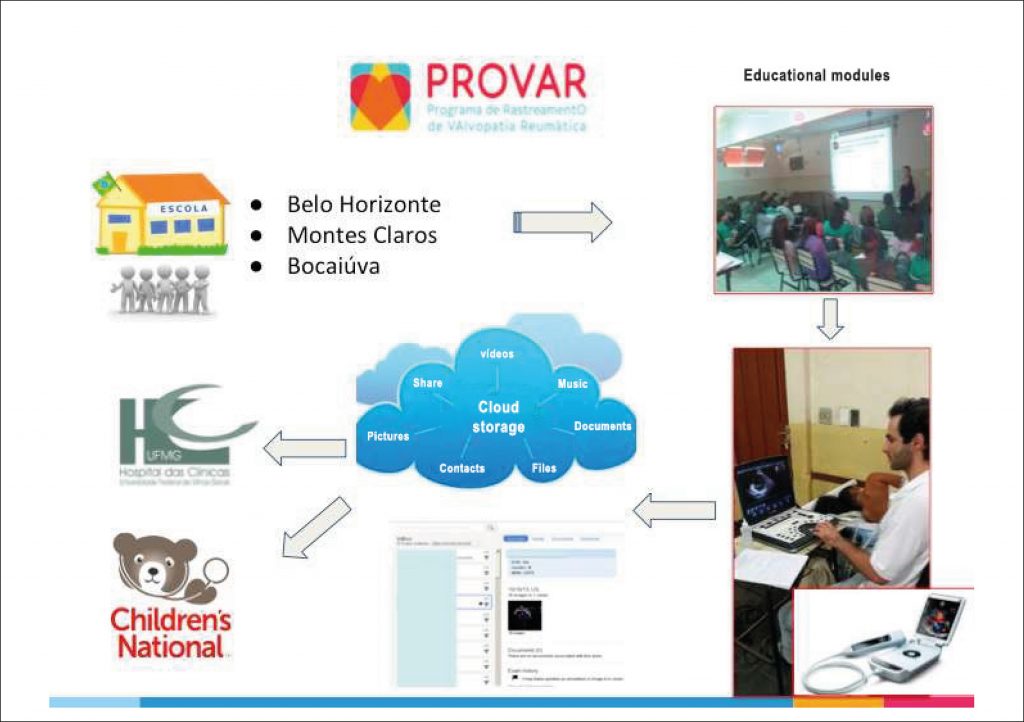Arq. Bras. Cardiol. 2017; 108(4): 370-374
Challenges for the Implementation of the First Large-Scale Rheumatic Heart Disease Screening Program in Brazil: The PROVAR Study Experience
DOI: 10.5935/abc.20170047
Introduction
Rheumatic Heart Disease (RHD) is the cardiac consequence of acute rheumatic fever (ARF), an inflammatory disease triggered by streptococcal pharyngitis. Although the prevalence of RHD has decreased in high-income countries, lack of social and economic development and poor primary prevention – mainly in in low- and middle-income countries – perpetuate an environment where RHD remains endemic. It is estimated that RHD continues to affect nearly 33 million people worldwide. According to the World Health Organization (WHO), RHD is responsible for 1-1.5% of all cardiovascular deaths and 3-4% of cardiovascular Disability-Adjusted Life Years (DALYs). In Brazil, according to the Unified Health System (SUS), there were 26,054 hospital admissions for ARF (45% with cardiac compromise) between 2008 and 2015, and the total cost to SUS was US$3.5 million, a number that is most likely underestimated.
The main burden of RHD to public health systems consists of repeated hospital admissions and cardiac surgeries in the following decades after initial cardiac damage. If RHD is detected in its early stages, secondary prophylaxis (regular penicillin injections) can be initiated to prevent new episodes of ARF, avoiding further valve damage and progression of RHD. In high prevalence regions, RHD meets the traditional screening criteria defined by Wilson and Jungner, although the long-term clinical significance of latent RHD is not entirely clear. Previous studies have demonstrated, however, that in 38 to 68% of asymptomatic RHD patients, echocardiographic findings show that abnormalities persist, and progress in 4 to 16%, reinforcing the importance of early diagnosis in susceptible populations.
[…]
Keywords: Adolescent; Child; Echocardiography; Mass Screening; Rheumatic Heart Disease
412

